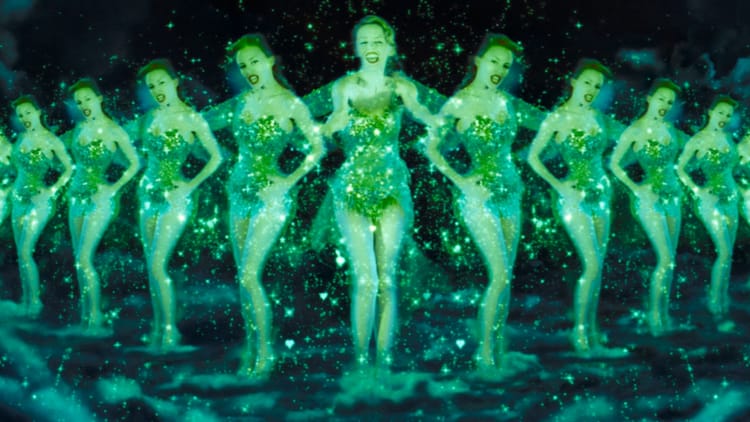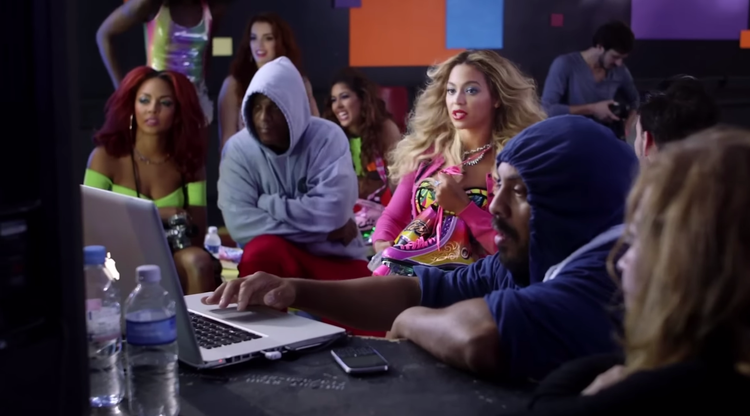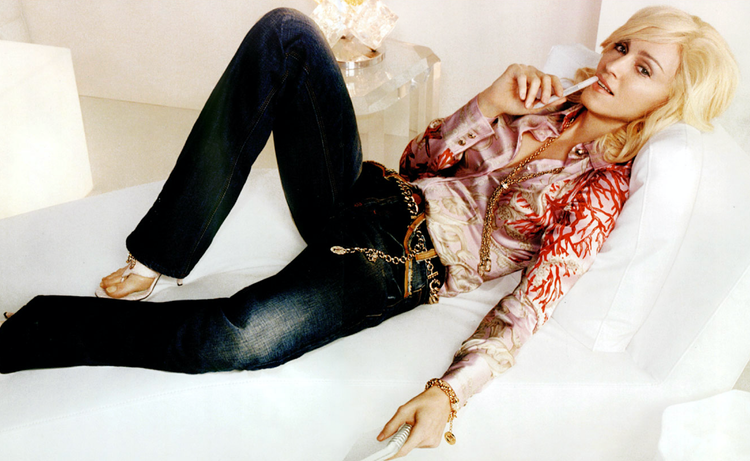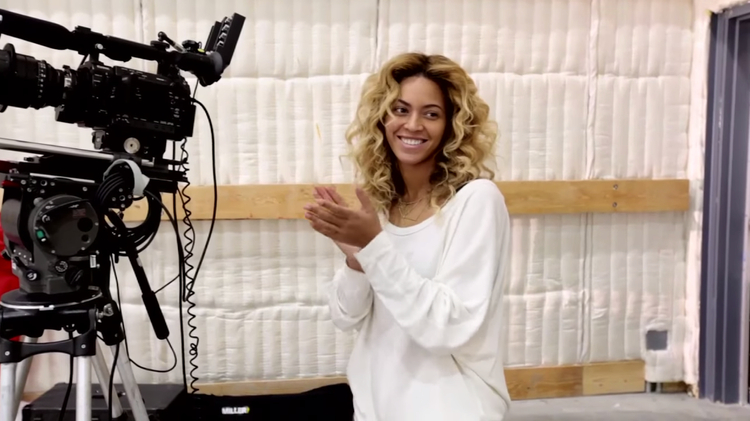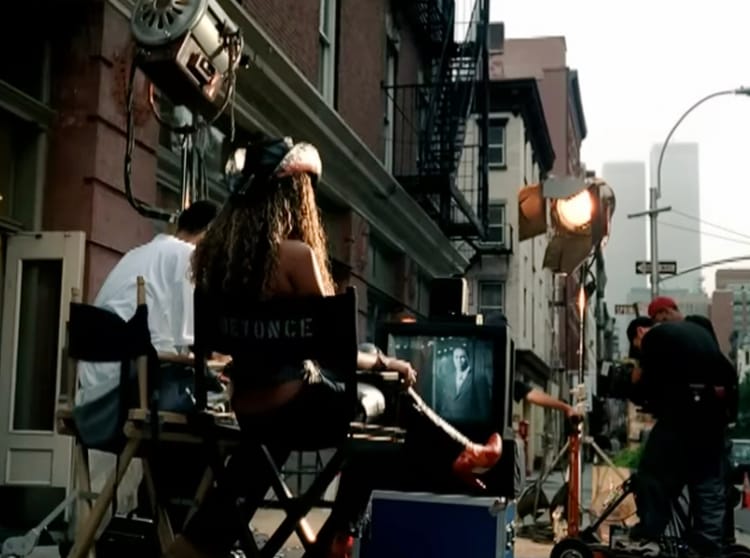AMA no. 3
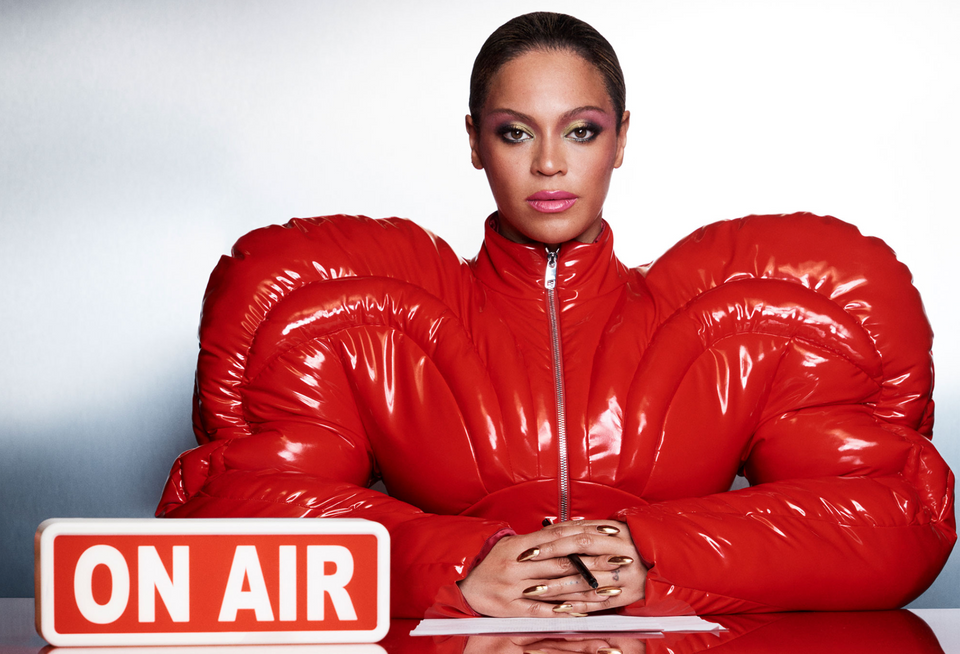
A little while ago, technically all the way back in mid-June, this newsletter officially turned two whole years old. (I’m obviously very late, not without good reason but still with plenty of guilt!) Two isn’t a huge amount of years, but a lot has happened in there—in the world, obviously, but also in my life and my writing brain.
This birthday around, I wanted to ~take stock~ of everything related to Mononym Mythology and make any necessary tweaks, the way I’ve been trying to do with most other aspects of my life in 2022. I like to think that I do this every year or even more frequently than that, but this one’s been Especially Big for a number of reasons. Still no plans to make you pay for this, so I’ll say that first. Still calling this baby by its mouthful of an alliterative name, and still very much interested in “the intersection of pop music and moving images,” as I wrote in my first-ever instalment back in 2020. (I elaborate on all of this in my new stab at an About page, which you can consider a work in progress.)
As far as what’s actually new? Very little in terms of stuff you can already see. But assuming that my ~taking stock~ has been effective, you should expect starting now to hear from me regularly as opposed to seasonally, to read about some new suspects in addition to the usual ones, and to get me more often in off-the-cuff mode. Things have obviously been pretty inconsistent as of late, and it took me some time to realize that it wasn’t this newsletter that was broken but rather my relationship to writing (as I get into a bit below). But I feel good about this next chapter, truly, so I hope you’ll stick around!
In the meantime, as with last year’s birthday, I’m commemorating this one with another ask-me-anything round. Thanks to everyone who sent me questions on social media a few months back (though I couldn’t answer them all)… if you even remember doing that.
It feels like culture is so dominated by stan culture, from music to entertainment franchises to simply just celebrities. The spaces to have full discussions about the work have collapsed or have become far more fraught for the people that want to have those convos. Do you think there’s a world after stan culture? Will it get worse as these properties and celebrities become better able to exploit those currents and control their own messaging, as critical entertainment journalism is declining?
I won’t lie that stan culture as it currently exists extremely bums me out. Fandom itself isn’t inherently a sinister thing by any means, but the practice of blanket-praising an artist and/or their work regardless of the specifics, and sending death threats to anyone who doesn’t do the same, is something else entirely. It makes being a journalist and/or critic 100x as difficult, which means that it’s harder to point out—and hold big names accountable for—things like missteps, or holes in a project, or genuinely evil shit. It’s also horrible for art itself, since artists with the most capital and cultural cachet are allowed to be the laziest ones.
Since everything is about money and engagement and clicks (all of which are really money) these days, brand accounts and film festivals and publications have pivoted to actively courting stans; there’s just overwhelming incentive for them to do it in this landscape, and I totally get it. But it’s very much a double-sided coin: lots of examples of stans mobilizing for good, sure, but also a ton of bad. I honestly don’t know what the solution is on a cultural scale, but my own personal philosophy as a writer boils down to: critique where it’s earned—even about someone or something I love—generosity where it’s earned—even about someone or something I don’t love—and, crucially, being cool with others approaching things the same way.
What do you find is your greatest challenge when tackling a long-form piece about someone? And what is the moment when you feel like you know you have the piece, that it’s ready. How do you know? / Do you ever find yourself losing passion for a subject of a long-form piece? If so, how do you reinvigorate yourself? Same thing could be asked about writing itself. [These were two questions that I’ve combined.]
The challenge really depends on the piece! For instance, I found my Tony Bennett project extremely stressful, however rewarding, because it felt like there was an hourglass going while I was working on it. It sounds silly now in light of him having turned 96 the other day, but I kept seeing tweets and getting emails while writing that piece—and when I started working on it, he was 94—that made it seem like I was going to run out of time before I could get it finished. Towards the end of writing anything, I’ll also suddenly have doubts that I’ve gone for the weirdest or stupidest or most obvious possible angle. Like: are all my readers already going to be intimately familiar with Tony Bennett’s MTV stardom, and I’m just embarrassing myself? Was it a mistake to make this Madonna crash course all about her relationship to death? That sort of thing.
Also, I can have a hard time getting thoughts out of my head and onto the page, less because the thoughts aren’t there and more because I’m one of those editing-myself-in-the-moment people, and it really slows me down when it comes to turning words into sentences that I can see in front of me. I also admittedly sometimes get a bit tripped up on the idea that whatever I’m writing is going to be read, especially now that I have something of a quote unquote audience. I enjoy being read—thank you for reading me!—but I think it sometimes enters my writing process earlier than it should. In a similar vein, I’ve scrapped pieces that I knew would get me into trouble on Stan Twitter, where I couldn’t justify spending a week (or more) getting terrifying DMs and opted to chicken out in the end. Or sometimes, to my shame, I’ll find myself thinking about how I’m going to tweet a piece out long before I’ve actually finished writing it. (That said, this can be useful for pinpointing the “so what?” of your piece; it really depends.) In fairness to me, my most-read essay ever is one that I didn’t expect so many people to read, and where I probably would have written and promoted it differently had I known so many people would.
I’ll know a piece is ready when it’s been read over many times out loud by myself (and, depending on the piece, also read by someone I respect), when I’ve been able to close every tab that I’d had open in the name of research and fact-checking, and—least explainable, but maybe you’ll know what I mean—when I get that very specific click/explosion in my brain (and I guess body; maybe I’m just describing an adrenaline rush?) telling me that something’s finished. But I should stress that a piece being ready doesn’t necessarily equal me being confident, just that I’m aware on a logical level that there’s nothing else for me to do.
I’ve indeed lost passion for pieces while writing them and paused writing them as a result, but I try to hold onto those drafts because you never know. In the cases where I’ve ended up returning to said drafts, it’s usually just time and breathing room that pulled me back. Time brings new examples that can bolster or complicate an argument—Taylor Swift’s recent All Too Well: The Short Film shenanigans have helped me make breakthroughs in like three different drafts—and more opportunity to have an epiphany on the way to the grocery store or something. It can also be very pleasant for September you to go back and open a draft that February you already made a notable dent in. I’ve been pretty inspired by this recent revelation that “Thique” from Renaissance was a circa-2014 draft that Beyoncé and Hit-Boy went back to; sometimes things didn’t make sense then but make a ton of sense now.
I’ve also fallen out with writing more broadly on occasion, and in those times there’s usually something crooked about the way I’m approaching it, or it’s just plain burnout. I most recently had one of these moments this past spring, and it turned out to be a wake-up call that I was working too hard, for not enough money, on pieces that only sometimes felt important to me—and a bit too passive in all of this. But sometimes I’ll think I “can’t” write when it’s actually more of a “won’t,” in which case I’ll need to do something gimmicky to get myself to sit down with a Word document open for even an hour.
Favourite Toronto sighting in a music video?
A few come to mind, but I especially love what the Weeknd did with the Toronto Reference Library in “Secrets” (2017). And the first half a minute of Drake’s “Toosie Slide” (2020), aka everything before his weird-ass house shows up.

Where do you see Beyoncé or Madonna’s careers heading in the next few years? And is there anything about their respective careers you find to be super underrated?
If I’ve learned anything Beyoncé, it’s that she’s quite hard to predict; it’s fascinating to me how she loves to completely abandon a particular rulebook just as soon as the rest of the industry starts getting the hang of it. But I have a feeling that she’ll at some point try to get fans into actual movie theatres again, and I mean with a Parkwood Entertainment production (more akin to Lemonade [2016] than Cadillac Records [2008]).
Not to be predictable, but Beyoncé’s filmmaking is probably my answer for underrated things, too. Even if you’re undecided about the actual quality of the feature-length art—and I think her films do vary in terms of execution, even if I’d call each ambitious in a way that endears it to me by default—I’d love to see there be more of an across-the-board acknowledgement (even among her fans!) that Beyoncé sees herself as a director of films, and that she founded a production studio a decade and a half ago because she wanted to be a director of films. I’ve been working on a couple different things related to this for a while, but they’ve been comically thrown off by Renaissance.
With Madonna, she seems to be leaning a little more than usual lately into revisiting and hyping up her past work; she famously hasn’t been all that interested in becoming a nostalgia act while she still has more to say, something that actually pisses a lot of people off. But I think this revisiting dovetails quite well with the biopic that she’s working on, and that the next couple of years will probably be largely about said biopic—and therefore lots of think-piecing and rehashing and arguing and commemorating re: Madonna’s life and career. Steady work for me, in other words.
This won’t sound like an underrated thing if you’re already a fan and/or of a certain demographic, but I wish there were more widespread knowledge among younger people of Madonna’s AIDS crisis-era work, and how it dovetailed more generally with her knack for sexual provocation as a way to get people talking. I think there’s a misconception among people who’ve never really looked into it that Madonna was, as Abdi Nazemian once put it to me, “a guest in queer culture for one year in 1990” (the year “Vogue” came out), or that AIDS was her cause of choice because every celebrity needs one. But I think you could write a whole book, literally, telling the story of how untrue both of those things were—starting, perhaps, with Madonna’s late dance teacher and mentor Christopher Flynn taking her to her first gay club in the ‘70s, and maybe ending with her “Human Nature” (1995) anti-apology video (even if the story technically continued thereafter).
There’s a relevant photograph I saw for the first time the other day that’s kind of been haunting me, from Madonna and Sean Penn’s wedding day in 1985. In terms of visible faces from left to right, we have Studio 54 co-founder Steve Rubell; artists Andy Warhol and Keith Haring; an apparently shy Tom Cruise; designer Maripol; and Madonna’s best friend and former roommate, Martin Burgoyne. Over the next half-decade, the majority of this photo—plus Flynn, her aforementioned mentor—would die, all except Warhol from AIDS. And that’s what was happening in the background of Madonna’s rise to global stardom.
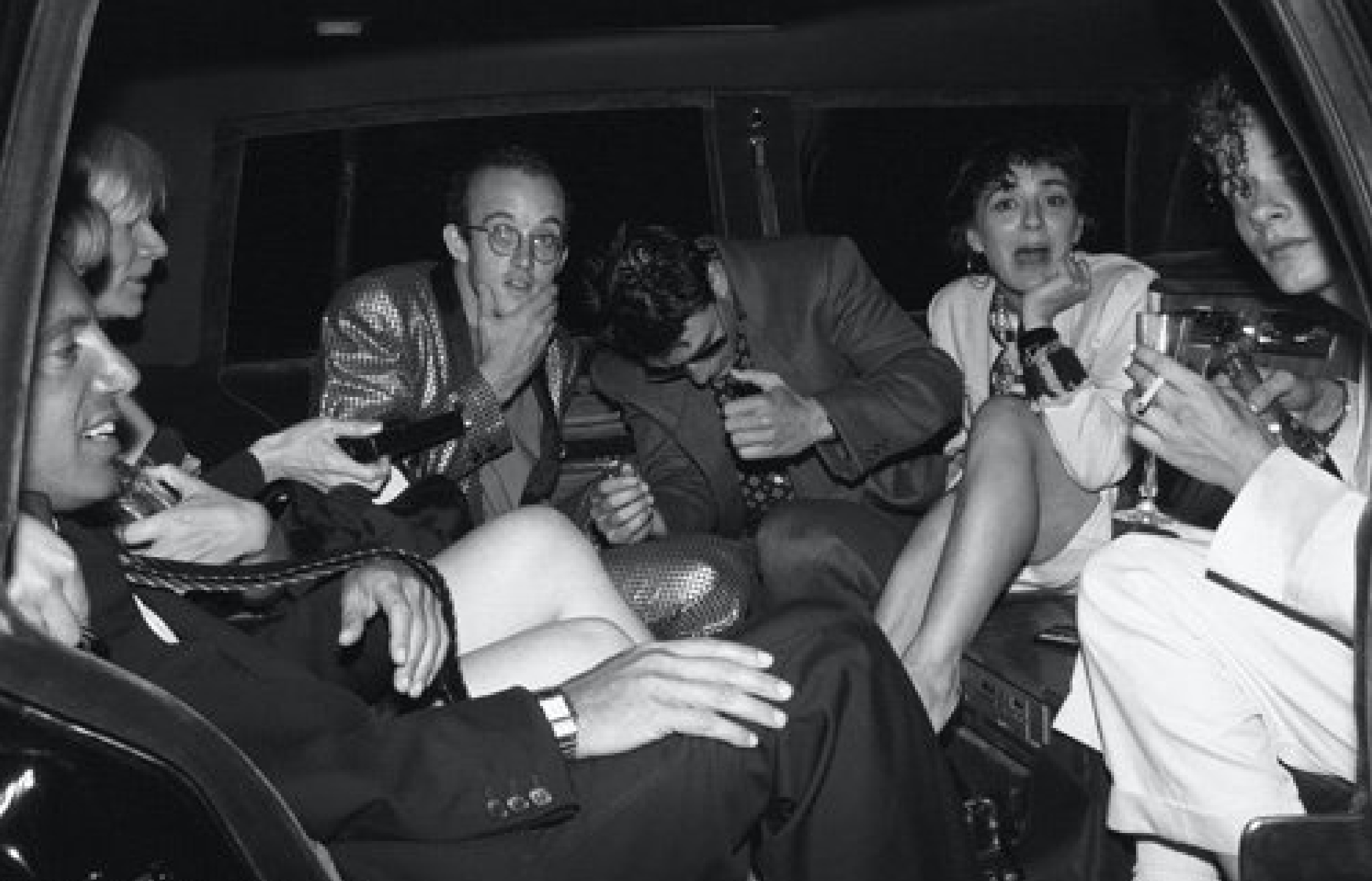
I’m asking you, right now, to pick your top four (thank you) Beyoncé songs off the top of your head. No thinking. Straight up just the first four that come to your mind when you think of Beyoncé songs that you love. And then… do the same for videos. This process should take no longer than one minute. Your fans will not hold these rushed answers against you but are interested in what pops out of your head on this day.
Songs: “Haunted,” “Grown Woman,” “Blow,” and “Don’t Hurt Yourself.”
Videos: “Haunted,” “Blow,” “Formation,” and “Why Don’t You Love Me”
I should say in terms of housekeeping that I answered this before Renaissance came out, that I found it very difficult, that I might answer it slightly different now, and that I’m clearly a hopeless BEYONCÉ (2013) obsessive.
Could you talk a bit about your feelings regarding unauthorized biographies/documentaries, etc. and how they shouldn’t be written off—pros/cons, that sort of thing?
I should say first that it’s entirely case-specific! But a good general rule for things like music biopics and biographies and docuseries and essay collections, I find, is that people don’t tend to make movies and write books about subjects whom they don’t have at least a baseline level of respect for. There are definitely exceptions, but when it comes to figures like famous musicians—I’m obviously not talking here about, like, Famous Dictators of History—you probably aren’t embarking on any kind of long-form project out of spite, or with the express goal of taking someone down. I personally find that even longer essays can be tedious when you don’t give at least a few personal fucks about a subject.
I’m starting with that point because one of my big things is that I don’t think unauthorized biographical projects need to be written off on principle. That’s a strangely prevalent belief, and one I feel like I’m seeing more and more often on Twitter in recent months as it’s become more popular to re-interrogate icons of the past (Britney Spears, Pamela Anderson, and so on). I think that a lot of the time, people see “unauthorized” as shorthand for “malicious,” when it usually just means that a subject hasn’t thrown themselves behind a project for whatever reason. Sometimes that happens early in the game, like Anderson not being interested in Pam & Tommy at all. That’s a good example where the execution of the series may have been flawed (and even ironically so given the consent aspect), but where things obviously originated out of a desire to exonerate rather than ridicule her. You can get it wrong even when your heart’s in the right place.
But sometimes it happens later in the game, which is why I think context matters above all else. A good example would be how Alanis Morissette, who was heavily involved in the production of the recent documentary Jagged—the whole thing is structured by an interview she sat for, and the film is largely supplied by her own footage—decided that she was unhappy with it as it was coming out, as in that same week (which I think director Alison Klayman handled very gracefully). And some people’s response to that was to say, Okay, so I won’t watch it, which I’m not sure is all that necessary. (Watching the film, which I reviewed during TIFF last year, I couldn’t for the life of me figure out what had bothered Morissette about it, and she wasn’t terribly forthcoming in her statement.) Kanye West did something in the same ballpark when jeen-YUHs was coming out, possibly to create additional buzz around the series, as did Angelyne of Angelyne. And it’s like, fine! Totally allowed. But the nuances of it are important.
On the other hand, of course, you don’t necessarily want things to be too authorized. It’ll be interesting to see how this recently-announced Amy Winehouse biopic plays out, since it’s estate-authorized and coming after the Oscar-winning Amy (2015), which—from what I understand—was itself estate-authorized but eventually denounced by her father, Mitch Winehouse, who didn’t appreciate how he came off in the film.
But—*Tevye voice*—on the other hand, there are definitely cases where something being fully-authorized works out great, where the final result is fascinating (e.g. Rocketman, in my opinion) as opposed to off-putting (e.g. Bohemian Rhapsody, in my opinion). So while I don’t know what to expect with something like this forthcoming Weird Al biopic or the Madonna biopic in terms of cinematic quality, it’s always neat to see how someone approaches their own life story, period. (And Weird Al appears to be touching on the inherent artifice of music biopics as a genre, at least from what the trailer suggests.) There’s always the risk of artists revising history, I guess—you don’t have to tell me!—but that only matters when the project in question has any claims to truth or reality in the first place, and it’s arguably fine so long as there are critics there acting as watchdogs.
Can I ask your fave Cronenberg and why?
There’s still so much of his work that I haven’t seen, and I won’t name names because I’d get myself into trouble. But from what I have seen, it’s absolutely Crash (1996). That’s a film I first encountered as a preteen while looking for boobs on late-night television—I almost certainly watched it on mute for the first time, like this memory is really as impure as it gets—and have now actually seen it in a theatre where Cronenberg surprised the audience afterwards. I’m generally a sucker for James Spader, so that’s a lot of it, but I think it’s mostly how it found me in that particular moment in my brain development. I sometimes wonder if there’s a connection between seeing that film when I did and the way that some of Lady Gaga’s work would get under my skin as a teenager, but I’d have to come back to this.
What advice do you have for fellow Canadian writers or writers outside the US who want to start writing and pitching for mostly American-based publications? Did you find that there was an added barrier of entry for you, in addition to the barrier of entry that’s already in place for writers without the benefits of nepotism or intrinsic connections?
Funny enough, I’ve written overwhelmingly for American and British publications so far, and not so much Canadian ones (with a couple exceptions that I’m definitely grateful for). The only thing resembling a challenge when I write (or edit) for people in other countries is having to spell things differently, so not an actual challenge. And I guess sometimes my holidays are different from theirs.
I do have to navigate the odd licensing and distribution weirdness—in Canada, we don’t have Hulu or HBO Max or certain other streamers/brands, but we’ll still get those streamers’ productions. So when I reviewed Framing Britney Spears, I had to get the screener from the FX Networks Pressroom, mention in my review that the show was going to Hulu because it’s always assumed that I’m writing for an American reader, but then clarify to any Canadian friends and family reading my review that they’d actually have to watch it on Crave. A lot of online film culture also revolves around American things that Americans might not realize (or care) are strictly American things. Nicole Kidman and Maria Menounos aren’t part of my moviegoing experience, for example, so I—and others—will just smile and nod while our peers meme the hell out of those two (same goes for MoviePass, FilmStruck, etc.).
Being Canadian, it is perhaps trickier for me to find a staff gig, since those are scarce in Canada relative to the US, and then American companies often say in job postings that you can work remotely when what they actually mean is that you can work anywhere in the US, and that’s not always made clear in the posting. But it’s worth stressing in all of this that I do live in a big city—one where the majority of the country’s media companies of note are headquartered, including one of the most important film festivals in the world. So I definitely have it easier than some of my peers in other parts of Canada.
Either way, my advice for pitching American-based publications is to just pitch them. Assuming that the piece in question doesn’t necessitate you physically being in the United States of America, and that you spell things the American way when you file, editors literally couldn’t care less. I can’t think of any instance of that not being true in my career so far.
Who is your favourite Beatle?
I’m not sure whether this is a boring answer but it’s absolutely Paul, with whom I once shared a revolving door in New York City. Some of that might be some admitted unfamiliarity (at least relatively speaking) with the other boys’ solo and non-Beatles stuff, but I do enjoy the guy’s work! (I quite liked this New Yorker profile of him from a while ago.)
He’s actually worked a number of times with Jonas Åkerlund (who was also directing that Brian Epstein biopic until he suddenly wasn’t), so my thesis research introduced me to quite a few things of McCartney’s that I probably wouldn’t have encountered otherwise. I think this is the only video they made together, but the real highlight was Åkerlund’s concert film Live Kisses (2012), where McCartney (with Diana Krall, Stevie Wonder, and more) records his album of American standards, Kisses on the Bottom (2012). Just a very charming 75 minutes, and it actually won the Grammy for Best Music Film that year.
Your readers want to know your opinion on Christina Aguilera. She’s such a strange artist who exists in both every time period and no time period at all, with a videography that has never really made much noise, aside from “Dirrty.” Do you have any feelings at all about the #OreoDunkChallenge champion?
Funny enough, the first time I did an AMA back in 2020, I said that I was currently working my way through Christina’s career. And while that was technically true at the time, I’d literally only just started to do it when I said that, and then I almost immediately got sidetracked. I remember that I’d been planning on writing something about Burlesque (2010) turning 10, but then didn’t end up doing that, so my records tell me that I only got as far as her 1999 self-titled album era. (I’ll be resuming things ASAP.)
The thing with Christina is that I grew up with her music, so it’s less that she’s a gap for me and more that I haven’t done the formal comb-through I like to do before attempting to write anything worthwhile about someone. (If there’s ever an artist where you’re wondering why I haven’t covered them in this newsletter, I’m almost certainly not snubbing them—with maybe one or two exceptions—but rather getting caught up.)
I remember that I had Christina Aguilera in my CD organizer, and being mesmerized by the change in her appearance between Stripped (2002) and Back to Basics (2006), and spending a little too much time with the “Not Myself Tonight” (2010) video in high school. But a theme in all of these memories is that I was never really listening to anything beyond the singles, with the exception of that first album. (I’ve only relatively recently heard most of her albums in full.) Christina has actually come up pretty often here and there in other things I’ve worked on—in the context of Åkerlund, since he directed “Beautiful” (2002) and “Moves Like Jagger” (2011); in the context of Tony Bennett, who sang with her a couple times in the aughts; and then of course in relation to other people I write about more frequently, like the fact that MTV panned away from her Madonna kiss at the 2003 VMAs.
It’ll be interesting to revisit this answer once I’ve actually gone through her career, but my impression of Christina at the time of this writing is that her talent has always been undeniable, but that she’s sometimes struggled to be compelling to the general public beyond her voice, or at least did struggle with that once the 2000s had wrapped up? Her name doesn’t seem to hold the celebrity gossip value that it once did, and I virtually never see her being discussed on my Twitter timeline unless it’s in the context of something she did two decades ago. (I also learned answering this that she has a mere eight million Instagram followers, which might not sound mere until you check other stars’ profiles.) She’s someone where it would actually make a lot of sense to do a Netflix documentary at this point in time.
When are you blessing us with a book, Sydney?
There’s truly nothing I’d like to do more! It’s a goal I’m always thinking about, even if I don’t think I’m necessarily in a hurry to write a book. I’ve actually worked pretty seriously on at least a couple proposals in the past, which I put aside for different reasons. And I can’t realistically get back on that wagon until 2023, but it’s been long enough since I’ve been on said wagon that I’m now looking forward to it. Stay tuned, I guess? I certainly appreciate the boost either way.
What are some current music trends you’re digging? And what are some fads you’re looking forward to the industry moving on from?
Artists self-directing their videos isn’t a new phenomenon, but it does feel like it’s reaching a new and maybe unprecedented peak. 3/6 nominees for Best Direction at this year’s VMAs were artists who’d self-directed their videos (last year it was 5/6), which is a noticeable shift. Beyoncé is likely to release some sort of feature-length project where she’s a credited director like... any second. And then it was announced this past week that Taylor Swift is going to be doing a talk at TIFF, where she’s screening All Too Well: The Short Film (it’s a music video) on 35mm. I’m working on something about this now so I won’t say too much, but Taylor has spent a good chunk of the year endearing herself to major film orgs, possibly because she’s submitting the film (it’s a music video) for Oscars consideration. So while I do have some caveats about the self-directing thing, in a selfish way I’m excited about the trend because of how perfectly it plays into my interests, thus giving me things to write about.
In terms of fads that I’m sick of, I can always see right through videos that have been made to be turned into listicles or cinematic parallels-type memes and seemingly have nothing else to say. (Drake is a notable offender here, but it earns him a Video of the Year nomination like… every year.) I’m all for referencing and sampling, since that’s to some extent what pop music is all about, but it arguably works best and hits hardest when there’s a reason why you’re referencing a specific thing—when you’re looking to put yourself in conversation with an artist whose project you’re looking to build upon, for example, or when there’s some other kind of commentary at work.
It feels like we’ve sort of reached peak referencing, where we have big artists over-relying on nostalgia, and then up-and-comers trying to position themselves as the next [insert iconic artist here, but the recent go-tos are Beyoncé and Janet Jackson]—recreating their iconic videos and even live performances—before they’ve actually made clear why we should care about them on their own. I can think of at least three or four younger artists right now who’re publicly leaning too heavily on their Beyoncé fandom in particular, in a moment where they should really be carving out their own shticks. The bedrock of your work can’t be someone else’s!
Top three albums of the 2020s so far?
I’ve loved so many from the last couple of years, but I think the three that have meant the most to me are probably Renaissance, Billie Eilish’s Happier Than Ever (2021), and Christine and the Queens’s La vita nuova (2020) EP. Each of those came (or almost certainly will come) with a hefty visual component, and that sort of thing tends to win me over. Some of the names floating just below the top three—in no particular order—would be the Weeknd’s After Hours (2020), Chloe x Halle’s Ungodly Hour (2020), Halsey’s If I Can’t Have Love, I Want Power (2021), Kacey Musgraves’s star-crossed (2021), and Taylor Swift’s folklore (2020).
Thoughts on global warming and Lady Gaga?
Does anyone think global warming is a good thing? I love Lady Gaga. I think she's a really interesting artist.
— Britney Spears 🌹🚀 (@britneyspears) February 10, 2011
Mononym Mythology is a music video culture newsletter by me, Sydney Urbanek, where I write about mostly pop stars and their visual antics. I do that for free, so if you happened to get something out of this instalment, you’re more than welcome to buy me a coffee. The best way to support my work otherwise is by sharing it. Here’s where you can say hello, here’s where you can subscribe, and you can also find me on Twitter and Instagram.
